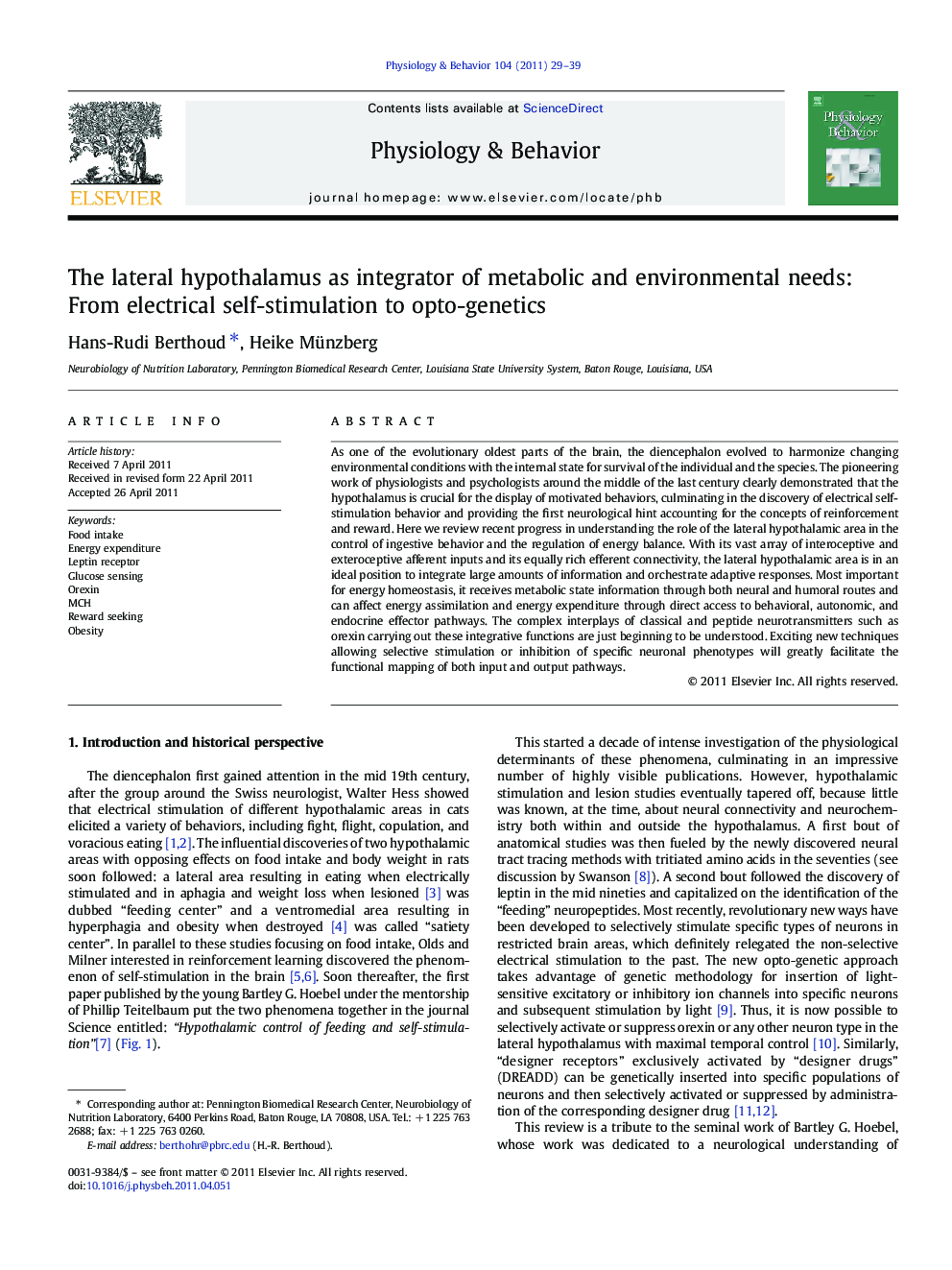| Article ID | Journal | Published Year | Pages | File Type |
|---|---|---|---|---|
| 2844575 | Physiology & Behavior | 2011 | 11 Pages |
As one of the evolutionary oldest parts of the brain, the diencephalon evolved to harmonize changing environmental conditions with the internal state for survival of the individual and the species. The pioneering work of physiologists and psychologists around the middle of the last century clearly demonstrated that the hypothalamus is crucial for the display of motivated behaviors, culminating in the discovery of electrical self-stimulation behavior and providing the first neurological hint accounting for the concepts of reinforcement and reward. Here we review recent progress in understanding the role of the lateral hypothalamic area in the control of ingestive behavior and the regulation of energy balance. With its vast array of interoceptive and exteroceptive afferent inputs and its equally rich efferent connectivity, the lateral hypothalamic area is in an ideal position to integrate large amounts of information and orchestrate adaptive responses. Most important for energy homeostasis, it receives metabolic state information through both neural and humoral routes and can affect energy assimilation and energy expenditure through direct access to behavioral, autonomic, and endocrine effector pathways. The complex interplays of classical and peptide neurotransmitters such as orexin carrying out these integrative functions are just beginning to be understood. Exciting new techniques allowing selective stimulation or inhibition of specific neuronal phenotypes will greatly facilitate the functional mapping of both input and output pathways.
► A historical perspective of lateral hypothalamic functions is provided. ► The anatomy, connectivity, and chemistry of the lateral hypothalamic area is reviewed. ► Lateral hypothalamic mechanisms involved in energy homeostasis are discussed. ► The utility of cutting-edge modern methodology is highlighted.
